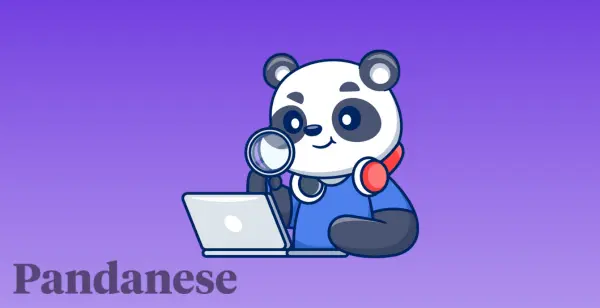
The Fun World of Chinese Puns and Homophones
Mandarin Chinese is one of the languages with the largest amounts of homophones (同音词 tóngyīncí), i.e., words that share the same pronunciation but have different meanings and are written with different characters. You may have noticed this when writing on your laptop on when texting: when you write the pinyin, you are presented with a long list of characters from which you must choose the one you intended to write.
This peculiar characteristic of the Chinese language reflects many aspects of Chinese culture. So get ready to be surprised, intrigued, and amused by the fascinating world of Chinese puns.
Chinese homophones and superstitions
In Chinese society, homophony gives rise to many superstitious beliefs. So, let’s take a look at some.
1) 4 = death
Basically, 4 is considered an unlucky number because the pinyin for four (四—sì) sounds similar to death (死 —sǐ).
2) Clocks = last moments of life
The second superstition is gifting clocks. Clocks are considered an ominous gift because the Chinese phrase meaning "gifting a clock" (送钟—sòng zhōng) sounds exactly as 送终—sòng zhōng, meaning "to be with someone in their last moments."
3) Pear (梨—lí) = separate (离—lí)
There are other homophones you should consider when giving gifts to a Chinese friend. For example, the word for "pear" (梨—lí) sounds similar to the word for "separate" (离—lí). This linguistic association could lead to the belief that giving pears could symbolize separating or parting ways, which may be considered bad luck or an unfortunate omen.
4) Shoes = evil
According to another superstition, giving someone shoes as a gift is also considered unlucky because "shoes" (鞋—xié) sounds similar to "evil" (邪—xié). It's believed this could bring bad luck or misfortune to a person.
Chinese food puns and celebrations
Many phrases and words used during traditional festivals are based on puns. Here are the most famous ones:
5) "To experience yearly abundance" (年年有余—nián nián yǒu yú)
This phrase bears a homophonic resemblance to "yearly abundance of fish" (年年有鱼—nián nián yǒu yú). Thus, the Chinese New Year food custom of eating fish signifies welcoming prosperity for the upcoming year.
6) "Fortune has arrived" (福到了—fú dàole)
It is a common practice to display the character 福, symbolizing "luck," on doors, walls, and windows during Chinese New Year.
As the word "arrive" (到—dào) sounds similar to "turned upside down" (倒—dào), the 福 decorations are often hung upside down to symbolize that good fortune has arrived with the new year.
7) "Sweet dumplings" (汤圆—tāngyuán)
During the Lantern Festival, the final day of Chinese New Year celebrations, it is customary to consume this kind of dumpling. The spherical shape and the round bowls this Chinese food is served in represent unity and the reunion of family members because 汤圆—tāngyuán sounds very similar to the word for "Reunion" (团圆—tuányuán).
8) "Glutinous Rice Cakes" (年糕—niángāo)
The term for glutinous rice cake is a homophone of 年高 (niángāo) from the chengyu 年年高升 (nián nián gāoshēng), meaning "to ascend higher every year." Especially in southern China, consuming 年糕 during Chinese New Year is believed to bring prosperity.
Chinese puns against censorship
In recent years, Chinese netizens have started using puns to post without being subjected to censorship by using words that sound similar to banned ones.
9) "River crab" (河蟹—héxiè)
One of the most notorious homophonic codewords used in Chinese cyberspace is "river crab" (河蟹—héxiè). It originated as a satirical response to the former president's "harmonious society" campaign, which aimed to suppress dissenting voices and create "harmony" (和諧—héxié).
Initially, internet users mocked how government censors would "harmonize" or censor dissident content online. Over time, "to be river crabbed" became a synonym for "being censored." The characters for river crab were banned, so internet users have started to talk about other kinds of seafood to refer to censorship.
10) "Paratrooper" (伞兵—sǎnbīng) and "grass mud horse" (草泥马—cǎo ní mǎ)
They both sound very similar to two common insults in Chinese and are used to insult people without being banned.
11) #米兔 (#mǐtù)
The hashtag #米兔 "mǐtù" (rabbit rice) sounds similar to the English slogan "Me too," and it was used to talk about the movement once the original slogan was banned in China.
Chinese puns involving numbers
Young Chinese people usually associate numbers with words and phrases that sound similar to the combination of numbers. Take a look below:
520 (五二零—wŭ èr líng) sounds quite similar to wǒ ài nǐ (我爱你), which means "I love you."
1314 (yī sān yī sì) sounds similar to the chengyu meaning "all one's life" or "forever" (一生一世 —yī shēng yī shì ).
666—liùliùliù, similar to 牛牛牛—niuniuniu, means "great", "awesome";
514—wǔyāosì sounds very similar to 我要死—wǒ yào sǐ, which means "I want to die";
530—wǔsānlíng is slang for 我想你—wǒ xiǎng nǐ, meaning "I miss you";
88—bābā sounds like 拜拜—bāibāi,meaning "bye bye".
Many of these are used in Chinese internet slang, so if you are curious, we have an article for you: The Ultimate Beginner’s Guide to Chinese Internet Slang for 2023
Puns and funny Chinese jokes in everyday life
Since puns are so easy to form in Mandarin, Chinese people use puns extensively in everyday conversations, advertisements, and marketing campaigns. Puns are used to create funny designs found on everyday objects. Many Chinese character jokes can be made with the right combination of vocabulary and hanzi.
It is a way to add humor, charm, and memorability to slogans, catchphrases, and brand names. These puns demonstrate the wit and creativity of the Chinese language speakers and contribute to the lively nature of Mandarin Chinese.
Want some examples? Here we go!
Funny Chinese designs
Puns are used to create funny designs found on everyday objects.
12) Sweating hamburger baby
For example, look at this funny T-shirt design based on a pun: 汉堡包死—hàn bǎo bāo, meaning "hamburger," becomes 汗宝宝—hàn bǎo bǎo, meaning "sweating baby."

汗宝宝 | Bitterstickgirl shop
Chinese puns in advertising examples
Chinese advertisements often use skillful play on words to capture attention, evoke emotions, and enhance brand memorability, creating an effective marketing strategy.
13) Taoxianda
This company specializes in groceries delivery and created a great campaign combining fresh product images and slogans.

Taoxianda advertisement | Zhihu
The image has 不想瞎操心—bù xiǎng xiā cāo xīn. It is a phrase that conveys the idea of "not wanting to worry about something unnecessarily" or "not willing to trouble oneself with unnecessary concerns. However, the character 瞎—xiā was replaced by a picture of a shrimp, which in Chinese is called 虾—xiā making it 不想虾操心.
The company created a powerful slogan to tell customers not to worry about their delivery service for fresh products, creating a humorous effect.
14) Fotile 方太

Fotile 方太’s video | Bilibili
One of Fotile's campaigns was "人间百太." You can watch their video on Bilibili, and you will see how Fotile kitchens are made for everyone and can accompany each person's special moments.
In each clip, the 方 in 方太 is substituted by a different surname, exemplifying this concept: everyone can find their own "Tai."
At the beginning of the video, the campaign's slogan is 人间百太—rén jiān bǎi tài is a play-on-words based on the Chinese chengyu "人间百态—rén jiān bǎi tài," a common phrase that can be translated as "myriad of human conditions" or "a hundred kinds of human behavior."
It refers to the diverse and complex nature of human emotions, behaviors, and experiences in the world: as you can see here, 态 was replaced by 太, which again stands for the company's name.
Funny brand names
15) 百衣百顺
For example, the chengyu* 百依百顺—bǎi yī bǎi shùn is a Chinese idiom that conveys the idea of being completely obedient and compliant. It is frequently used for laundries or clothes shops names by changing 依—yī with 衣—yī, meaning "clothing."
So when someone reads 百衣百顺, they associate the meaning of proper and order with the realm of clothes. The perfect balance of pun humor and function for laundry or shopping.

Chinese laundry using 百衣百顺 | Google images

Clothing shop | Meipian
Homophones in Chinese literature
Chinese literature has many double meanings in them.
For example, in the classic masterpiece "Dream of the Red Chamber" by Cao Xueqin, the novel's main family, Jia (賈—jiǎ), shares its pronunciation with the character 假—jiǎ, meaning "false."
In contrast, the surname of the other prominent family, Zhen (甄—zhēn), sounds like the word for "real" (真—zhēn) to suggest that the novel simultaneously represents both a realistic reflection and a dreamlike, fictional version of the author's family.
Why learn Chinese jokes, puns, and homophones?
While Chinese people can not think too hard about these puns, jokes, and homophones, learning Chinese through these inside jokes of the Chinese language can be fun and rewarding once you're able to recognize the characters.
You've come to the right place if you need help learning more Hanzi characters. Pandanese combines the spaced repetition system (SRS) with mnemonics to create a fun story to help memorize Chinese radicals, characters, and vocabulary. The SRS will personally design a review schedule so you can remember what you've learned.
Don't think too hard about the literal translation of the phrase or word; instead, get to the overall meaning. If you need help with the translation, ask a Chinese person such as a friend, teacher, family member, or online community for help.
Frequently asked questions
Does Mandarin have a lot of homophones?
Yes. Mandarin has a significant number of homophones. Since it is a tonal language with different tones and combinations of sounds, many words share the same or similar pronunciation.
What are some Chinese words that are the same but different meaning?
The most famous example of Chinese homophones is 4 (四—sì) sounds like death (死 —sǐ) in Chinese. Another well-known example is mother (妈—mā), which can be hemp (麻—má) or horse (马—mǎ) when misheard.
To conclude
Chinese homophones and puns are fascinating aspects of the Chinese language and culture. From traditional superstitions to clever marketing campaigns, puns play a significant role in everyday life.
Creative wordplay adds humor, charm, and memorability to various aspects of Chinese society, making it a lively and engaging experience. If you want to appreciate Chinese puns fully, you need to have a solid grasp of Chinese characters and their pronunciation, and possibly, the help of a Chinese friend.
Elisa Felici has been studying Chinese since 2014. She started her language-learning journey at Italian universities and lived in Beijing while attending Beijing’s Confucius Institute. Elisa passed HSK 4 and 5 and finally, in 2020, HSK 6. She now has a Master’s degree in translation and interpreting and has experience not only as a language learner but also as a Chinese teacher and translator.
The easiest way to learn Chinese & build vocabulary

